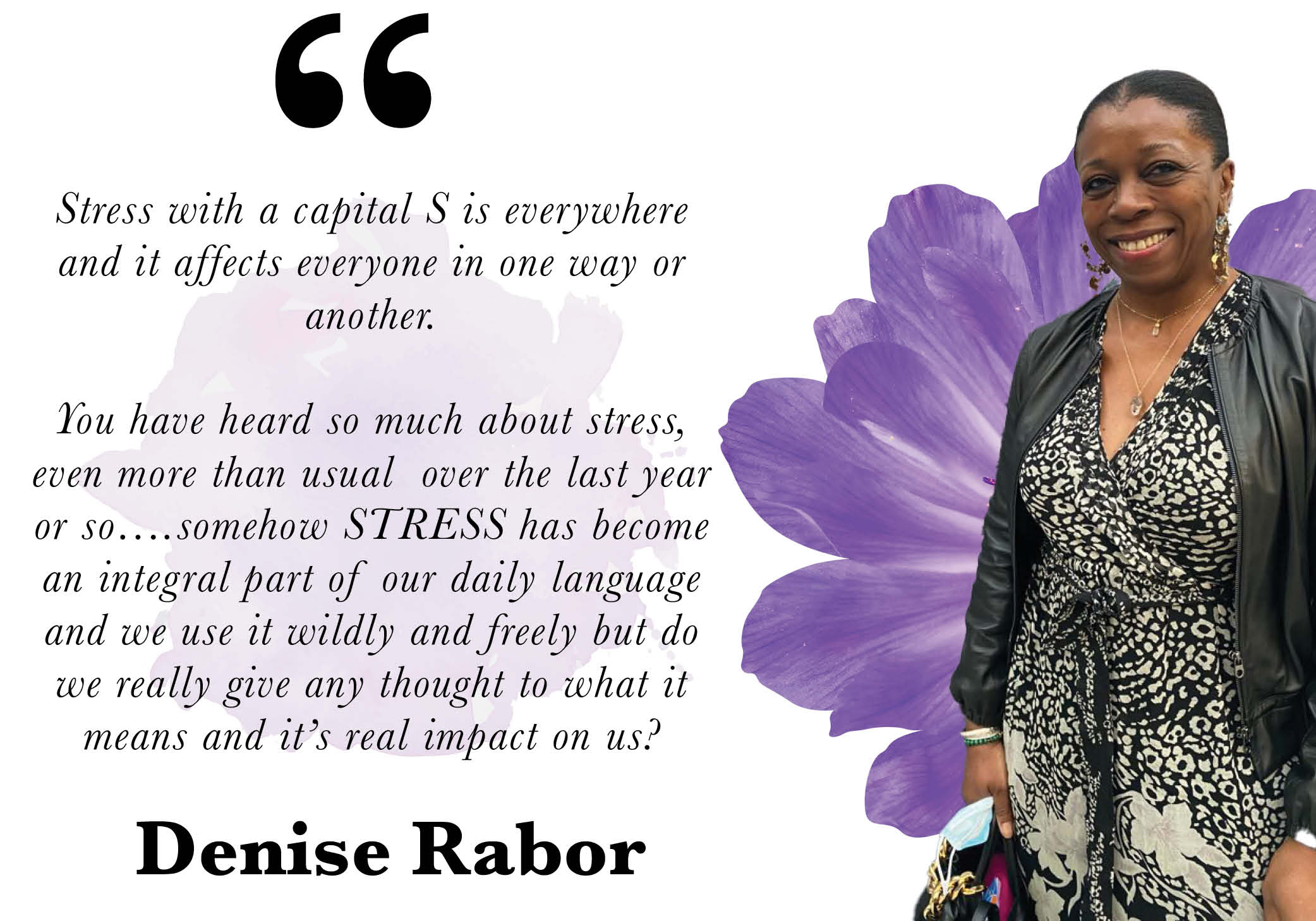Stress with a capital S is everywhere and it affects everyone in one way or another.
You have heard so much about stress, even more than usual over the last year or so….somehow STRESS has become an integral part of our daily language and we use it wildly and freely but do we really give any thought to what it means and it’s real impact on us?
According to the mental health foundation 74% of uk adults have felt so stressed over the last year they have felt overwhelmed or unable to cope. Wow and yes! The thing is that since covid 19 hit in 2020 and lockdowns began stress has increased as more of us struggle with uncertainty and lack of control.
Think about it… when else have most of us found ourselves experiencing such a dramatic instant shift in our lifestyle?
If you think about it, the word stress has probably been a part of many of your recent conversations with family, friends and colleague ….if it’s not you, then someone you’ve spoken with recently has brought stress into the conversation.
Stress defined
Well I think that we all know what stress is …but here’s a definition: ‘A state of mental or emotional strain or tension resulting from adverse or demanding circumstances’ Can you relate?
Stress is a creeper…
What I mean is that it’s all to easy for chronic stress to take hold without us noticing. Managing the demands of our daily lives can be demanding and stressful because we expect so much of ourselves: work, business, play, social media, all made more intense by the fast forward pace of technology which keeps creating amazing but potentially stress inducing apps that make us want to do more, faster!
It takes great effort to avoid the daily onslaught of news overload or to get disciplined about our gadgets
A little bit of stress ….
Is normal but it’s when it goes from a little to a lot and becomes continual that you have to take note.
In a nutshell we all know that a little bit of stress is good for us…it keeps us on our toes and can make us perform better in certain situations…. it’s prolonged stress that is problematic.
Symptoms
We’ve all experienced some of the various symptoms of stress which can be physical or emotional.
Some physical symptoms could be: headache, nausea, indigestion, racing heart, loss of appetite, comfort eating, low energy, aches and pains, body tension, jaw clenching
Some emotional symptoms could be: mood swings, irritability, poor sleep, poor concentration, trouble relaxing (mentalhealth.org.uk)
But we are all different and as you can see some of these symptoms could relate to other things too, like depression and anxiety.
What can you do…?
Well of course it depends on what elements of your life are stressing you out…but here are a few ideas.
A – take an honest look at your life and see if you’re able to identify what causes you the most stress ( we all have different concepts of what we perceive as stressful) sometimes there are changes that can be made that will reduce your stress triggers.
For example if some of your stress relates to deadlines why not put your deadlines on paper and categorise them according to urgency…today, this week, this month…it’s unlikely that everything has to be done now.
With work deadlines, if you’re finding yourself overwhelmed, again try prioritising: if you have a manager, speak to them and ask them for some support. Whether you’re working from home or in the office too many demanding priorities can creep up, leaving you stressed. It’s about looking at ways that you can work smarter.
B- be honest with yourself. Consider whether you’ve taken on too much …too much responsibility at work, at home, with family or friends – see what changes you can make and speak with those involved where possible.
C- make time for you and for the things that bring you pleasure and a sense of calm. It’s too easy to drop these things when life gets busy and stress builds. Consider exploring a mindfulness practice or meditation or journaling
D- get moving – it may sound boring but exercising can help…even a simple walk has benefits. “Exercise won’t make your stress disappear, but it will reduce some of the emotional intensity that you’re feeling, clearing your thoughts and letting you deal with your problems more calmly.” www.nhs.uk
E- connect with others. Have a conversation and learn more about your friends, family, colleagues. Sometimes life can get busy and you feel like you don’t have time –but it can lead to increased happiness, better health and a longer life. We crave feeling supported, valued and connected – it is a key factor in our wellbeing.
In conclusion I think that it’s important to remember to treat yourself with kindness. Take control of what you can change and accept what you can’t….while finding ways of managing it.
Take a moment to just breathe….
Beauties, did you know just how healing and calming taking a few controlled breaths can be? Deep breathing encourages full oxygen exchange and it can help slow the heartbeat and lower or stabilise blood pressure, amongst other benefits… it can help your response to stress. So take this moment with us, make sure to save this for future use and b-r-e-a-t-h-e with us.
How do you feel?









Leave A Comment